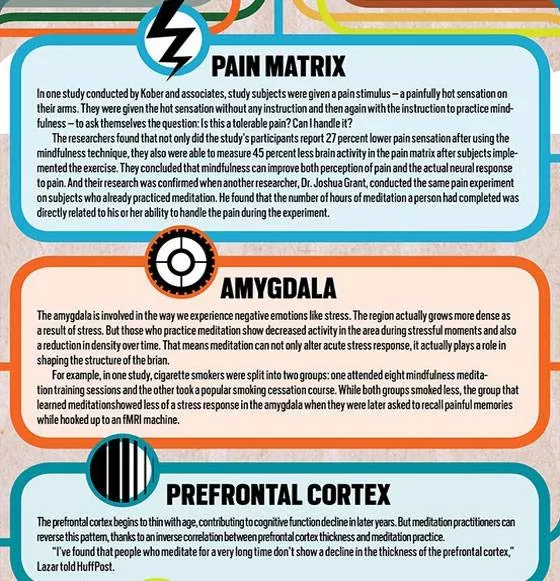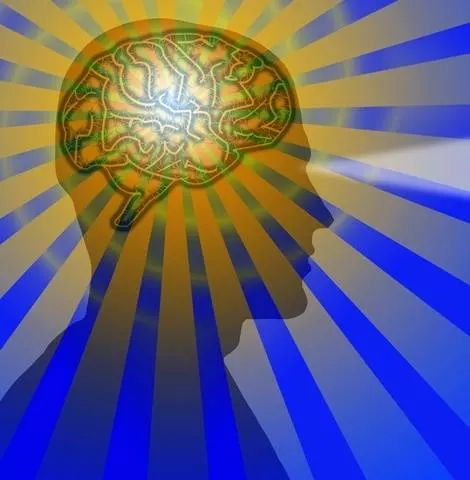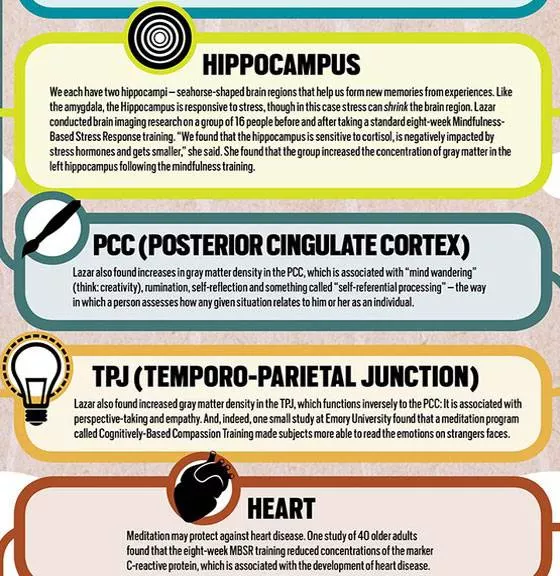“The goal of meditation isn’t to control your thoughts, it’s to stop letting them control you.” ~ Unknown
A human body has the capacity to heal itself, you only need to be consciously aware about the process and choose the right medium to heal. One of the healing medium used for centuries is meditation, a practice in which an individual trains the mind or induces a mode of consciousness, either to realize some benefit or as an end in itself.
Meditation affects your psychological well-being by reducing stress, depression, anxiety, blood pressure, and addiction, boosting the immune system, and improving memory. But did you know that meditation can change our brain structure in powerful and positive ways!
We have always believed that brain essentially stopped changing after adulthood.
You have the capacity to heal the emotional dysfunctionality of your own brain. When you increase your awareness with mindfulness, you can transform your brain, create new circuits or change the way neurons talk to each other.
Whenever you engage in a particular behavior over and over again, it can lead to changes in your brain.
Take a look at the video below at TEDxCambridge where neuroscientist, Sara Lazar talks about the effects of meditation on the brain –
Meditation for a short time goes a long way in improving overall health
“Although the practice of meditation is associated with a sense of peacefulness and physical relaxation, practitioners have long claimed that meditation also provides cognitive and psychological benefits that persist throughout the day,” ~ Sara Lazar, instructor in psychology at Harvard Medical School.
- A study conducted by Sara Lazar showed that an 8 week mindfulness meditation program can lead to structural brain changes including increased grey-matter density in the hippocampus, known to be important for learning and memory, and in structures associated with self-awareness, compassion and introspection. The participants also showed decreased grey-matter density in the amygdala, which is known to play an important role in anxiety and stress.
- A 2005 study on American men and women who meditated a mere 40 minutes a day showed that they had thicker cortical walls than non-meditators. What this meant is that their brains were aging at a slower rate. Cortical thickness is also associated with decision making, attention and memory.
- Scientists studying the Chinese mindfulness meditation known as integrative body-mind training (IBMT) confirmed improved mood changes along with increased brain-signaling connections after practicing 11 hours of IBMT. They also found an expansion of myelin, the protective fatty tissue that surrounds the nerves, in the brain’s anterior cingulate region. Deficits in activation for this area of the brain have been associated with attention deficit disorder, dementia, depression, schizophrenia and many other disorders.

Here’s another video talking about the positive effects of meditation on the brain –
It’s fascinating to see the positive effects of meditation, just being ‘aware’ can lead to such changes in the brain structure also known as ‘plasticity’ of the brain. There are things people get wrong about meditation, once we are clear about that we can progress on this path of sel-realization. Here are 4 Meditations For Honouring And Releasing Chaos and a Meditation for a Positive Mind, or if sitting still is not what you enjoy doing, then practicing walking meditation can help too.
The kind of life we lead is solely in our hands and we have the power and capacity to control our destiny. Simply meditating for 30 minutes every day can change your life!
Image Source
References
Effects of Meditation on the Brain – Chinese Mindfulness Meditation study







